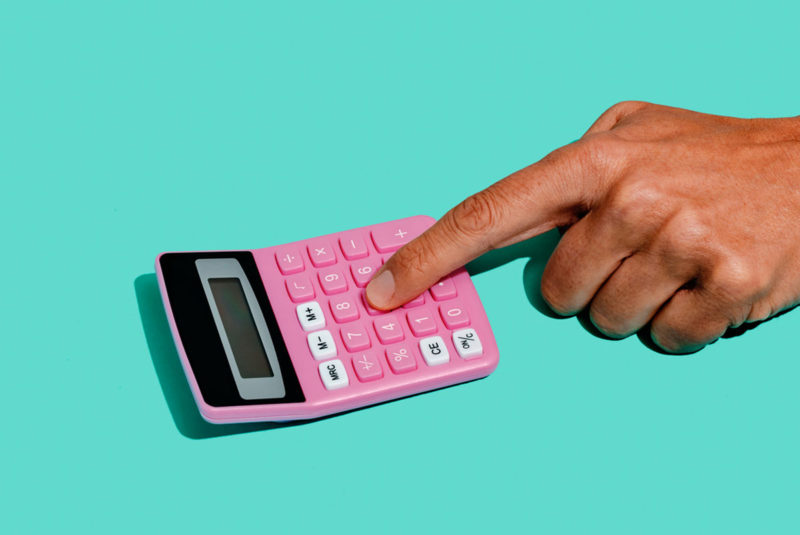“There are 3 collection accounts on my credit reports. I’m working to improve my credit and I was wondering, what is the best way to get the accounts removed from my reports? If I pay the accounts in full, will they be erased?”
The question above is a very common concern for consumers who are looking to rebuild damaged credit. Unfortunately, the answer to the question will frustrate and disappoint most consumers as well.
We’ll start with a quick overview of how you might be able to remove a collection from your credit reports. After that, we’ll go into a bit more detail as to why it may not happen.
How Do You Get a Collection Removed From Your Credit Reports?
Let’s begin with the honest truth. If there’s an accurate collection account on your credit reports, odds are slim you’ll be able to get it removed before it’s been there the maximum allotted time — seven years from the date of the original delinquency.
Typically, the only way to remove a collection account from your credit reports is by disputing it. But if the collection is legitimate, even if it’s paid, it’ll likely only be removed once the credit bureaus are required to do so by law.
Even so, there are a few steps you can take to try to get it removed faster. But be aware: they’re unlikely to work:
- Check all of your credit reports to see where the negative item appears.
- Determine whether the account is legitimate; if it’s not, you might be able to get it removed from your reports.
- Choose your plan of action. You have three choices — dispute the account (if it’s inaccurate), contact the collection agency for a goodwill adjustment (if you’ve paid the account in full), or simply wait for the account to be removed from your reports in due time.
- Acknowledge that you may not be able to remove a legitimate collection from your credit reports.
1. Check all your credit reports
You’re typically allowed one free credit report per year per bureau via AnnualCreditReport.com.
If you’re concerned about a collection account that you found on a certain credit report, check your other reports to see where else the negative information has been reported.
2. Determine the account’s legitimacy
Is the collection account legitimate — a past-due debt that you actually owe(d)? If it is, you’re going to have a tough time getting it removed from your credit reports. However, if the account is actually incorrect, or should have been removed from your reports by now, then you may be able to get it removed through the dispute process.
3. Choose your plan of action
There are a few ways to handle a collection account on your credit reports:
- If the collection account is inaccurate, dispute it with each credit bureau that’s reporting it. The consumer credit bureaus let you file disputes online for convenience. You can also dispute inaccuracies with debt collectors and creditors (like credit card issuers) themselves, though these disputes will typically have to be by phone or mail. In this case, consider sending a 609 dispute letter via certified mail.
- If the account is legitimate but has been paid, contact the collection agency to request a goodwill deletion. This literally involves asking for the account to be removed because you paid it. It’s probably not going to work, but it’s worth a shot. A goodwill adjustment may be more viable if you haven’t made any other credit blunders in the past.
- Just wait. A collection can usually remain on your reports for about seven years after the account was declared delinquent, even if it’s unpaid, and its impact on your scores will dissipate over time.
4. Understand the limitations
A collection account can severely damage your credit, but it’s important to remember that this impact is temporary. Manage your credit wisely otherwise, and you should be able to recover in time.
How Long Does A Collection Account Stay on Your Credit Reports?
The fact is that a collection account will not be removed from your credit report just because the account has been settled or paid.
Even after a collection account has been paid, the credit bureaus are still legally allowed to continue to report the collection for up to 7 years from the date of default on the original account, thanks to the Fair Credit Reporting Act.
To put it another way, a collection account can remain on your credit reports for up to seven years from the date the original debt became 180 days past due, regardless of whether the account has a $0 balance.
Will the Collection Agency Remove a Paid Collection From Your Credit Reports?
In case you’re wondering whether you can ask a collection agency to delete a collection account early from your credit reports as part of a settlement agreement, you’ll probably be disappointed again. Collection agencies typically won’t agree to this type of settlement, which is known as “pay for delete.”
Why not, especially if doing so might entice more people to pay off old debts? The reason collection agencies generally won’t agree to delete paid or settled accounts is because the major credit bureaus (Equifax®, TransUnion®, and Experian™) have asked them not to.
Collection agencies sign agreements with the credit bureaus to obtain the right to report the collection information they want included on consumer credit reports. After all, adding negative collections to credit reports is a big way that collection agencies put pressure on people to pay their old debts.
For example, someone might not care about an old medical bill that a collection agency is calling and writing them about. But if that old bill turns into a collection account that lowers her credit scores and gets her denied for a loan, suddenly things change.
So, as mentioned, collection agencies sign agreements with the credit bureaus to get those delinquent accounts added to consumer credit reports. In those agreements, collection agencies generally promise not to request the deletion of accurate information simply because the applicable accounts are paid.
Rather, per their agreements, they should only request deletion if an account is truly inaccurate.
No collection agency wants to lose the right to report information to the credit bureaus. That could put it out of business. As a result, most collection agencies take those agreements they sign very seriously.
You might hear that it’s illegal to delete a paid collection account before the seven years from the date of default passes, but that’s false. Credit reporting is 100% voluntary. The law doesn’t require any business to report information to a credit bureau, ever.
How Do Collection Accounts Get Started?
In order to better understand why paid collections are left on consumer credit reports, let’s take a quick look at the process whereby collection accounts end up on a consumer’s credit report in the first place.
Stage 1: An uncollectible bill
The process begins with an uncollectible bill (i.e. a medical bill, a credit card bill, a loan, etc.). Each original creditor or medical office has a policy regarding what they will do with uncollectible debt.
A company might sell the account to a debt collector. It might turn the account over to a collection agency. It could even write the account off and make no further collection attempts, but that’s not the norm.
Stage 2: A collection agency
Most creditors and medical offices will wait until the original bill is at least 120 days past due before turning the account over or selling the account to a collection agency. (And some will wait 180 days.)
Once an account has been turned over or sold to a collection agency, it’s typically not very long before a new collection account appears on the consumer’s credit reports. Some collections might appear on just one or two credit reports. Many others will be added to reports with all three credit bureaus.
Stage 3: A collection account is created
Future lenders desire to see a full report of your credit management history before deciding whether or not to offer you a new extension of credit or a new loan. This credit history (and your credit scores) is something used again, if you’re approved, to determine how much to charge you for financing.
The presence of any collection accounts on your credit reports, whether paid or unpaid, is indicative of elevated risk. This is very important information for a lender to know when reviewing your application for credit.
The Fair Credit Reporting Act (FCRA) allows for even paid collection accounts to remain on consumer credit reports for seven years from the date of default for this reason.
Frequently Asked Questions
What is a collection on your credit reports?
A collection account is created when a debt you’ve failed to repay is transferred to a collection agency. You’re still on the hook for paying the debt once it’s sold, but you typically have to pay the collection agency instead of the original creditor.
Debts aren’t usually turned over to collections the moment you make a late payment, but the time between your first missed payment and the transfer can vary. It may take several months, it may happen immediately, or it may never happen at all, depending on the creditor.
Once the debt has been turned over to collections, it’s generally reported to the credit bureaus. It’ll then appear on your credit reports and, as a result, damage your credit scores until it’s removed.
Can you remove a collection from your credit reports without paying?
Technically, the answer is yes. It’s unlikely, though.
There are a few ways you could try. They’re essentially the same steps you’d take to request a paid account be removed:
- File a dispute with the credit bureau and/or ask the collection agency to validate the debt if you believe the collection account is inaccurate.
- If the account is legitimate but you’ve paid some of it and/or have exhibited responsible behavior otherwise, send the collection agency a goodwill letter requesting the unpaid collection be removed from your reports.
If the above routes fail, you’re probably out of luck. And remember that even if a collection account is removed from your credit reports, you’re still liable for the debt.
In Summary
There’s usually only one way to get a collection account removed from your credit reports early, before the date the credit bureaus are required by law to purge the account from your reports.
If a collection account is incorrect or outdated, you can dispute the account with each credit bureau that’s reporting the inaccurate information.
Under the FCRA, when you submit a dispute the credit bureaus will have to investigate your claim. During the investigation, the collection agency will have the opportunity to prove the validity of the account.
If the account cannot be proven to be valid, then it must be deleted from your credit reports. It’s worth noting that if you’re disputing an account which the collection agency views to be valid, you can have a very hard time getting it deleted.
Sometimes people even have to enlist FCRA (Fair Credit Reporting Act) and FDCPA (Fair Debt Collection Practices Act) attorneys to fight on their behalf in these situations.
Unfortunately, collection accounts, with or without a balance, can have a significantly negative impact upon your FICO® scores as long as they’re on your credit reports. But as time passes, those collection accounts begin to have a less and less negative impact (assuming there was any negative impact to begin with).
This is good news for the consumer, as the potential negative score impact from a collection account won’t last forever.
And, perhaps the best news of all, the most recent versions of the VantageScore® credit score and FICO® 9 do not consider collections that have a zero balance. That means once they’re paid or settled (and then updated at the credit bureaus) they will no longer be considered.
There’s just one catch: These new scoring models aren’t widely used by lenders yet. So, when you apply for financing, chances are very high that your lender will use an older scoring model that does consider zero balance collections to be negative.
The Short Version
- If there’s an accurate collection account on your credit reports, odds are slim you’ll be able to get it removed before it’s been there the maximum allotted time
- Typically, the only way to remove a collection account from your credit reports is by disputing it
- A collection account can severely damage your credit, but it’s important to remember that this impact is temporary




